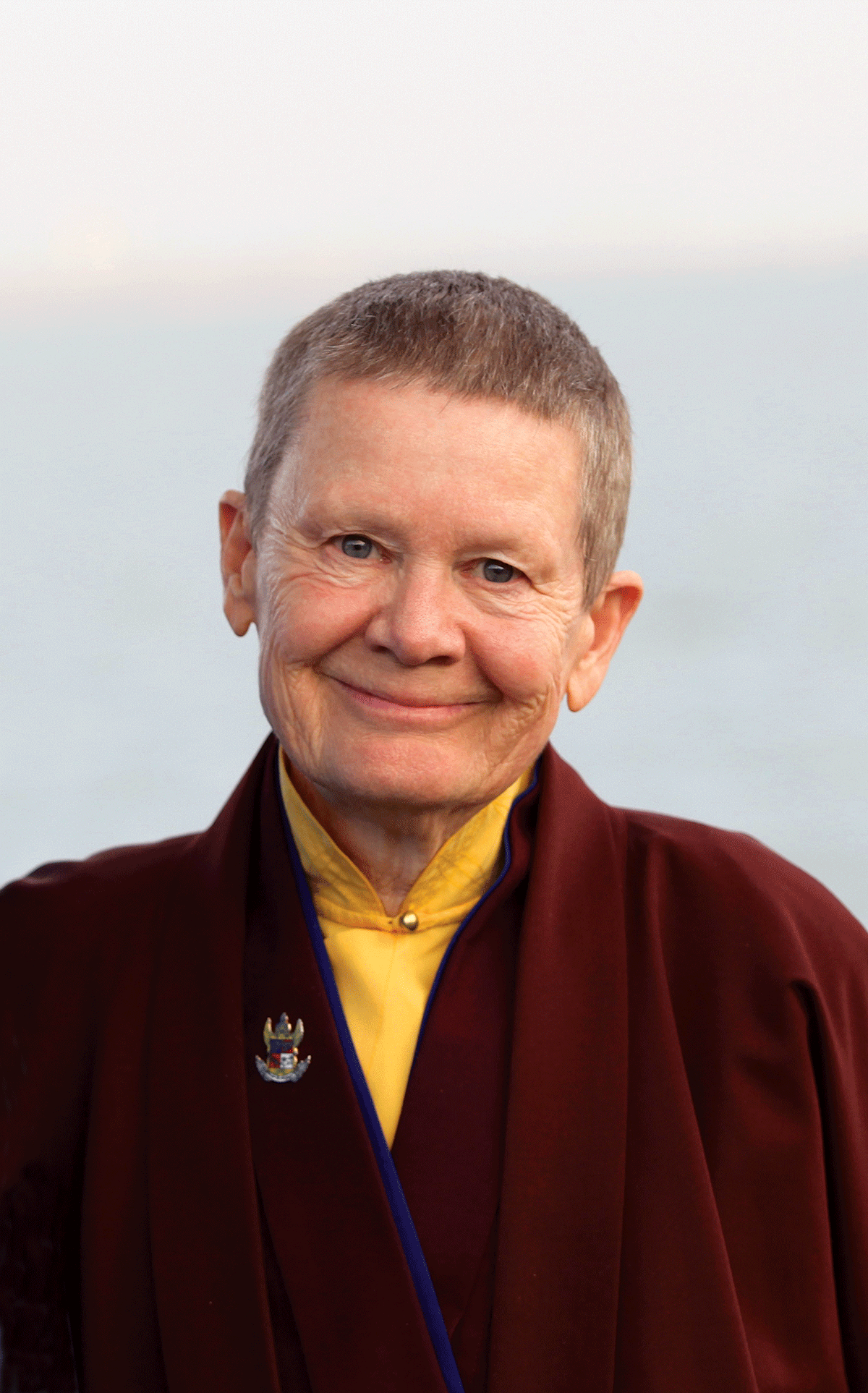You may have noticed, however, that there is frequently an irritating, if not depressing, discrepancy between our ideas and good intentions and how we act when we are confronted with the nitty-gritty details of real life situations. One afternoon I was riding a bus in San Francisco, reading a very touching article on human suffering and helping others. The idea of being generous and extending myself to those in need became so poignant that I started to cry. People were looking at me as the tears ran down my cheeks. I felt a great tenderness toward everyone, and a commitment to benefit others arose in me. As soon as I got home, feeling pretty exhausted after working all day, the phone rang, and it was someone asking if I could please help her out by taking her position as a meditation leader that night. I said, “No, sorry, I need to rest,” and hung up.
It’s not a matter of the right choice or the wrong choice, but simply that we are often presented with a dilemma about bringing together the inspiration of the teachings with what they mean to us on the spot. There is a perplexing tension between our aspirations and the reality of feeling tired, hungry, stressed-out, afraid, bored, angry, or whatever we experience in any given moment of our life.
Naropa, an eleventh-century Indian yogi, one day unexpectedly met an old hag on the street. She apparently knew he was one of the greatest Buddhist scholars in India and asked him if he understood the words of the large book he was holding. He said he did, and she laughed and danced with glee. Then she asked him if he understood the meaning of the teachings in that book. Thinking to please her even more, he again said yes. At that point she became enraged, yelling at him that he was a hypocrite and a liar. That encounter changed Naropa’s life. He knew she had his number; truthfully, he only understood the words and not the profound inner meaning of all the teachings he could expound so brilliantly.
This is where we also, to one degree or another, find ourselves. We can kid ourselves for a while that we understand meditation and the teachings, but at some point we have to face it. None of what we’ve learned seems very relevant when our lover leaves us, when our child has a tantrum in the supermarket, when we’re insulted by our colleague. How do we work with our resentment when our boss walks into the room and yells at us? How do we reconcile that frustration and humiliation with our longing to be open and compassionate and not to harm ourselves or others? How do we mix our intention to be alert and gentle in meditation with the reality that we sit down and immediately fall asleep? What about when we sit down and spend the entire time thinking about how we crave someone or something we saw on the way to the meditation hall? Or we sit down and squirm the whole morning because our knees hurt and our back hurts and we’re bored and fed up? Instead of calm, wakeful, and egoless, we find ourselves getting more edgy, irritable, and solid.
To be continued